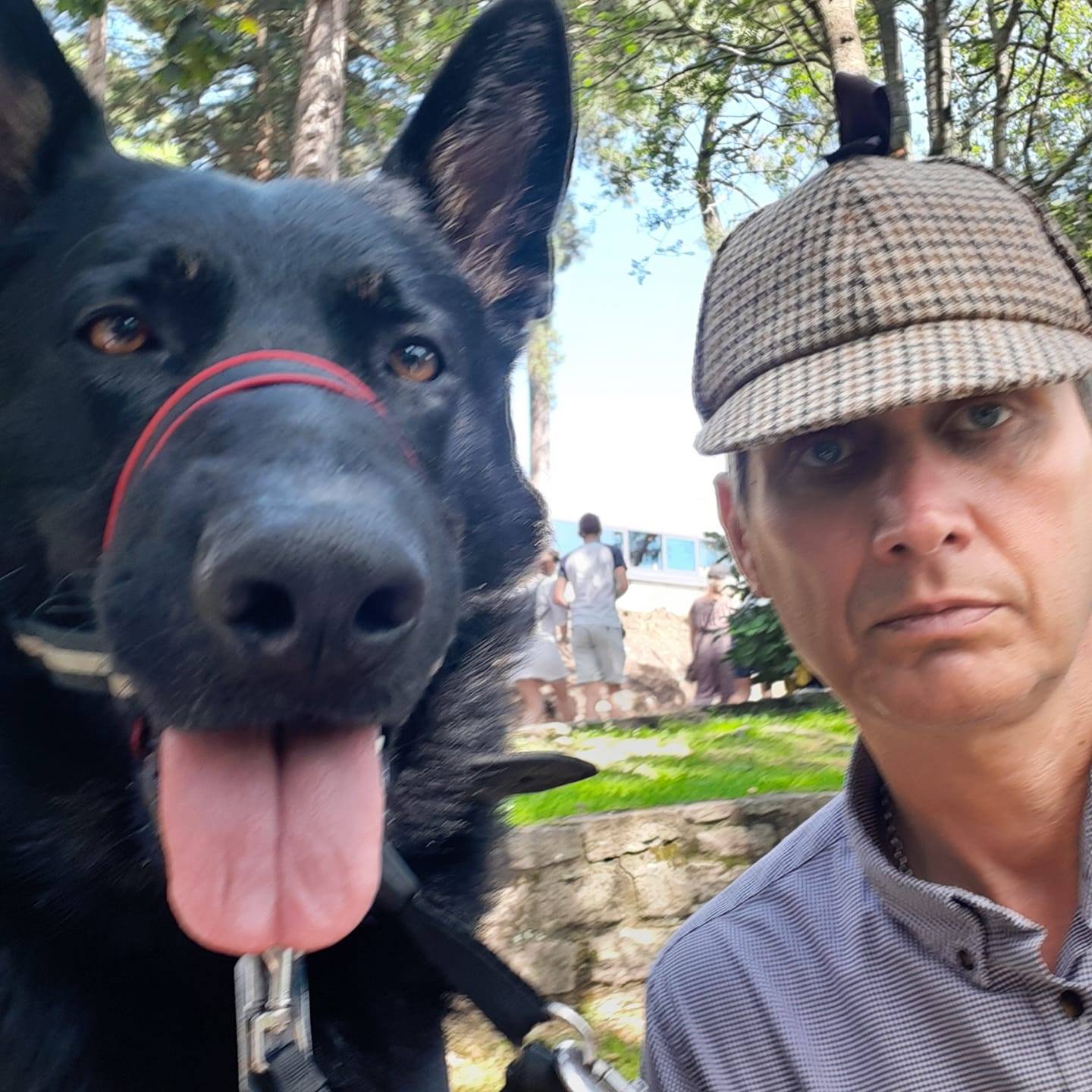Seven amazing jobs that working dogs can do
Man’s best friend has super powers! Meet the working dogs that fight crime and save lives!
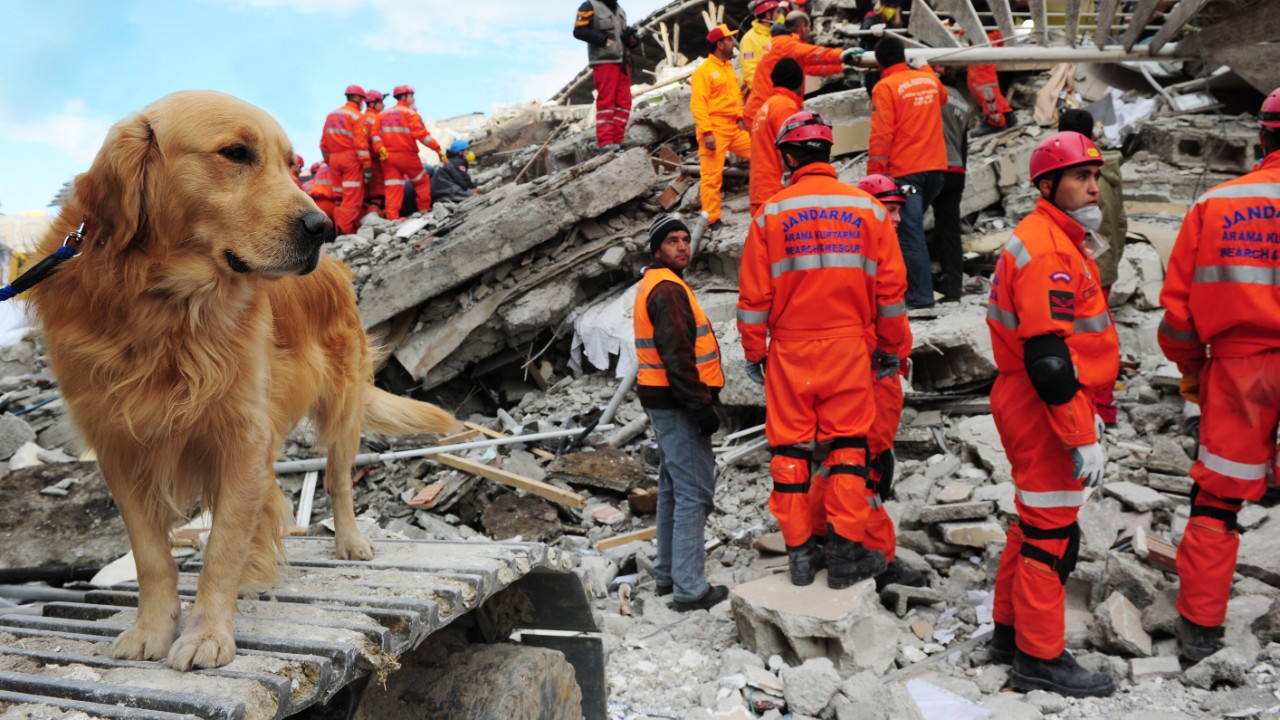
It might sound like it comes straight out of a comic book, but working dogs do indeed have an amazing array of super senses. And thanks to our co-evolution and the long historical bond that humans and dogs share, we are able to work together in tandem to harness these amazing abilities. For our canine buddies, working is the most fulfilling task – they are hard-wired to please and love to stretch their mental abilities in return for a tasty reward and some affection from their favorite human. Working alongside dogs is also incredibly rewarding from our perspective; this partnership results in wonderful array of jobs that we simply couldn’t do without our faithful friends.
Here are just a few of the roles that our canine companions excel in, and their amazing powers that help them get the job done.
- 2020’s 5 Bravest Animals: The pets who deserve a medal this year!
- Best dog food: Make sure your faithful friend gets the best in doggy diet and nutrition
- Best dog toys: Six options to keep your pet pooch amused
- Best dog bed: give your pooch the perfect night’s sleep
Search & rescue dogs
Thanks to their incredible sense of smell, dogs are excellent at search and rescue. In areas where it’s hard for humans to get to, a dog’s agility, energy, endurance and powerful scent receptors means that a large (or tough-to-reach) area can be searched in a short amount of time.
Search and rescue dogs and their handlers are often deployed in missing person cases, or in the wake of natural disasters to help locate people who may be at risk. The dog and handler will work as a team to systematically search an area, with different dogs trained to look for different things. Some can be trained to search for the smell of a live human - perhaps where people may be buried under rubble after an earthquake. Others are trained as trackers and are given a very specific scent to follow (such as an item of clothing belonging to a missing person) in order to locate a particular human.
The reason why dogs are so amazing at search and rescue jobs is due to their incredible scenting abilities. Thanks to hypersensitive noses, fitted with 300 million olfactory receptors, a dog can detect some odours in parts per trillion. Comparatively speaking, that’s like sniffing out a teaspoon of sugar in two Olympic-sized swimming pools. Pretty impressive ,huh?
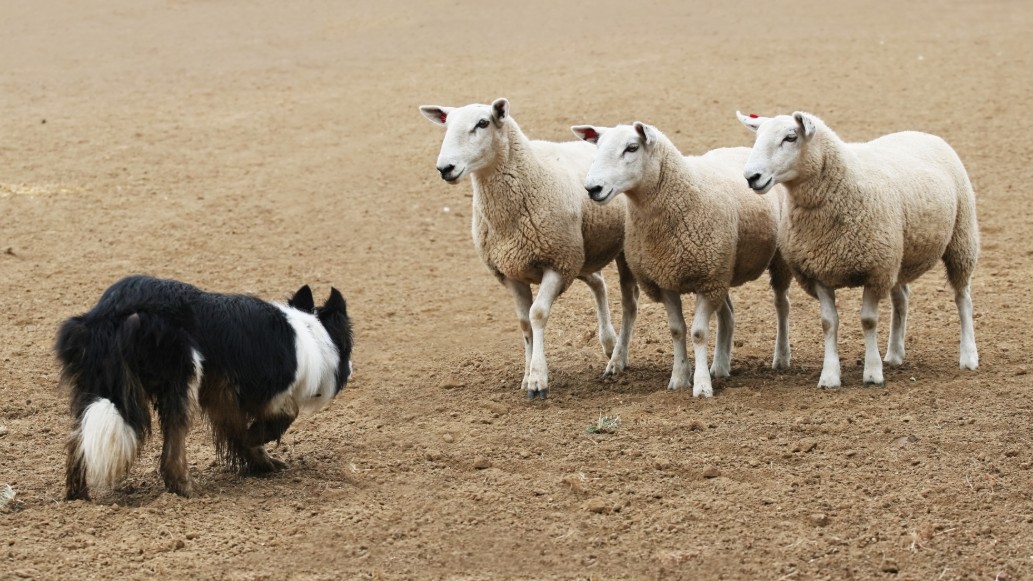
Sheepdogs
Working dogs that help with livestock is one of the oldest dog jobs on earth. Without sheepdogs, it would take farmers much longer to move their animals around, as they tend to wander off and certainly won't listen to directions. However, thanks to four quick legs and a can-do bark, sheepdog power is a sight to behold.
Border collies are traditionally quick and clever and perfect for this type of job. They are able to gather and herd flocks of sheep at the commanding whistles of a handler, sometimes covering huge distances across hillsides and fields. A good sheepdog will be able to move a flock without worrying the sheep or causing them any harm or stress – this requires years of training and a dedicated dog and handler team.
Get the best advice, tips and top tech for your beloved Pets
Police dogs
Dogs that work alongside the police are trained for a huge array of complex tasks. The ‘general purpose police dog’ may sound like a jack-of-all trades title, but they are actually highly skilled in many areas. For example, detection work is essential for tracking and finding people and objects as well as illicit substances. Police dogs are also used for public order where the presence of a dog may be beneficial to certain scenarios. These dogs are also used to apprehend criminals, where they can chase down offenders and provide support for their human counterparts – they’re amazing members of the team!
Obedient, agile breeds with high work drives make excellent police dogs. Loyalty is also important, and these police pooches will often form such a close bond with their handlers that they’re adopted after retirement. A partner becomes a friend for life.
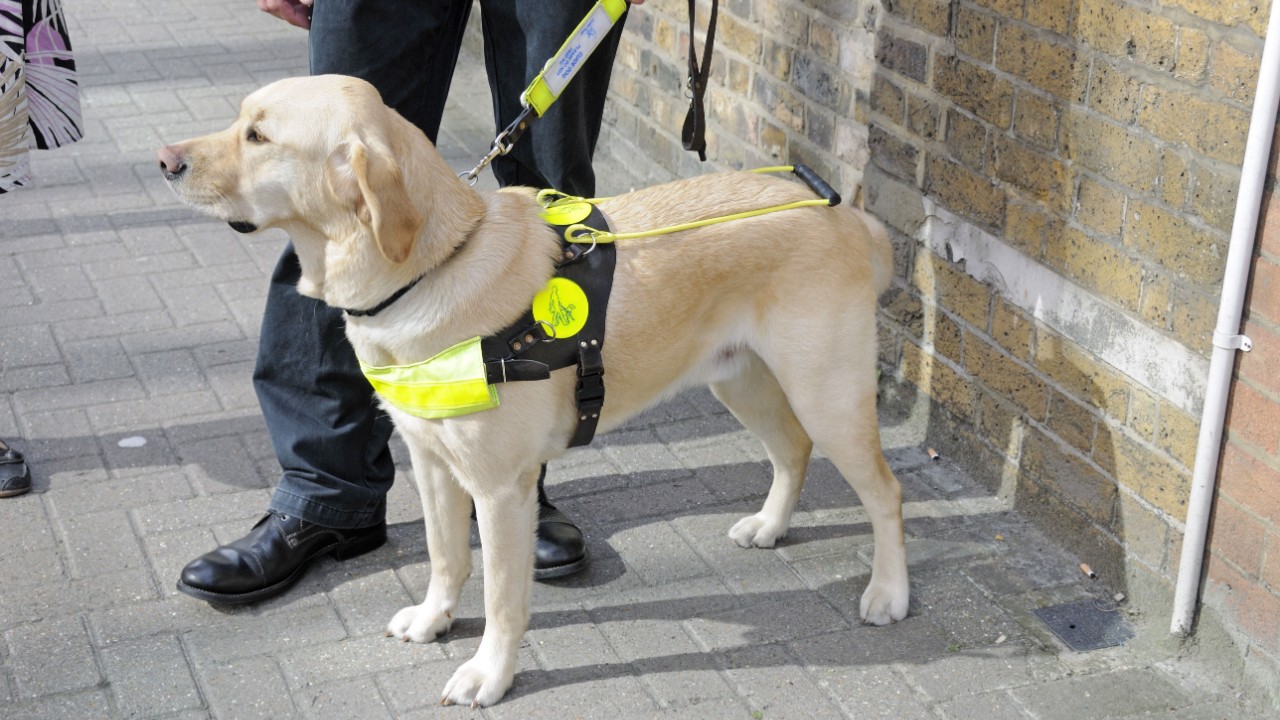
Guide dogs
One of the most important jobs for our canine pals is being a guide dog. These dogs are invaluable to their owners as they provide essential help, the ability to freely move about, and companionship to people with impaired sight. But there's a lot of training required to get dogs to a point where they can be a successful guide dog.
Guide dogs need to be cool, calm, and collected at all times when they’re wearing their harness. These clever pooches work in close partnership with their owners, responding to cues and instructions as well as independently guiding their owner along streets, avoiding obstacles, dealing with traffic and finding routes - so they can't get easily distracted by a squirrel or spooked by a loud noise. Guide dogs can also train as dual purpose dogs, providing extra assistance to those who need more tailored help from their canine companion.
There’s a huge amount of training that goes into raising every guide dogs from puppyhood. Pups are selected from breeding programs for a calm, focused nature. The breeds most suited to this kind of work are labradors, golden retrievers, German shepherds and cross breeds like labradoodles. Pups start training right away, learning essential skills very quickly. For example, the dogs need to learn a skill known as ‘selective disobedience’, where they must use their own judgement to disobey a command given by the handler if this were to put the handler in danger.
Detective dogs
Another job that gets dogs using their noses is detection work. This can be anything from sniffing out drugs, explosives, cash, firearms, cadavers – dogs can be trained to track down almost any object or substance. They are commonly used by the police, customs and border control officers, and private security firms. You've probably seen one of these canine workers at the airport.
Dogs will be given the command to search, where they will use their nose to systematically check the area, looking for a specific scent. If they find something, they will use an alert for their handler to let them know they’ve made a discovery. For some dogs, this alert will be barking. For others, they will simply lie down and stare intently at the area where the scent originates from.
The training for detection work starts when the dogs are just pups. The perfect candidate for detection work will have a high play drive and plenty of energy, and they will be gradually introduced to the scent that they will be tracking. Through a rigorous program of positive rewarding, the dogs learn to hunt for the smells – but really they’re working for their reward! Dogs learn that if they track down and alert to the particular smell, then they will get a well-earned treat or toy to play with.
Military dogs
Dogs have served in every major conflict since World War I – including Northern Ireland, Kosovo, Bosnia, Iraq, and Afghanistan – providing essential assistance to our troops.
Much like police dogs, those working with handlers in the army can fill an array of roles, from sniffing out dangerous substances, to patrolling bases, or helping to detect and alert troops to the presence of improvised explosive devices. Once initial training has taken place, dogs can specialise alongside their handlers, which can take them many different places. For example, dog handlers in some regiments will even parachute in with their canine counterparts.
In addition to their specialised jobs, military dogs will wear special equipment to keep them safe, including high-tech vests, GPS tracking devices and essential dog goggles to protect their eyes.
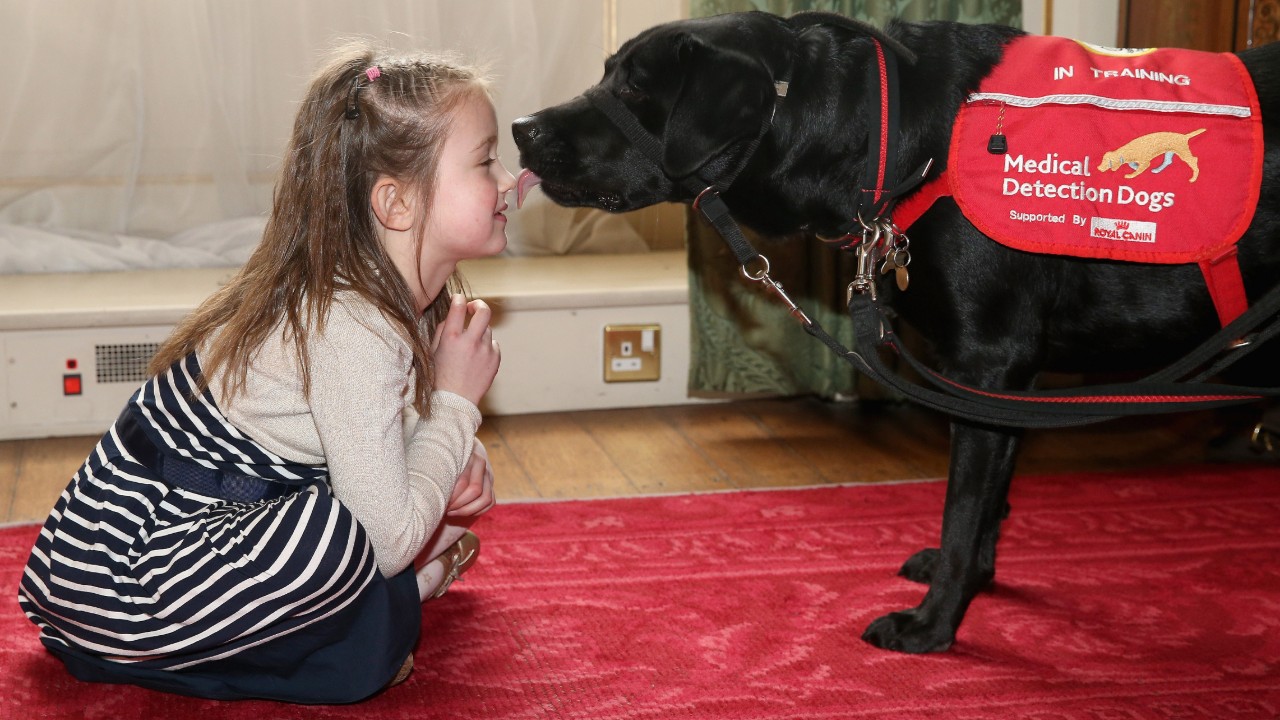
Medical dogs
There are two major type of medical dogs: medical alert dogs and bio detection dogs. Alert dogs live with their owners and spend every waking minute by their side. Thanks to their amazing sense of smell, they are able to detect tiny changes in our physiology due to odours that are released prior to an emergency. These dogs work with people with diseases such as type 2 diabetes or severe allergies, and will alert their owner if they sense a change for the worse. The owner can then take the necessary medicines or precautions to prevent any further deterioration to their health.
Bio detection dogs can be trained to recognise the scents that people release while developing specific diseases such as types of cancer or malaria, as particles associated with these diseases are released in our breath and urine. The dogs can sniff out these early-onset molecules and alert doctors so further tests can be performed.
Dave has over 20 years experience in publishing during which he launched many successful magazine titles including How It Works, All About Space and All About History. He’s also pet parent to a retired police dog called Rebel, who can’t work anymore due to a health condition. When’s not busy trying to amuse a boisterous, three-year-old German Shepherd, Dave's the Editor on PetsRadar.
